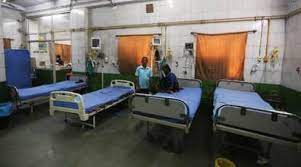
The Delhi High Court criticized the Delhi government on Wednesday for allegedly presenting an inaccurate portrayal of the state of facilities in its hospitals, particularly the functionality of CT scan machines and bed availability. The court expressed concern that patients were being denied admission due to the lack of essential equipment and beds, challenging the government’s data during a hearing on an application related to the recent death of a man who was refused treatment by government hospitals.
A bench led by acting Chief Justice Manmohan questioned the accuracy of the information presented by the government, stating, “This data is saying that the CT scan machine is working, while it is not working. We want to help you in fixing things, but it does not seem that you are giving the correct picture. Here everything looks hunky-dory. On the ground level, people are being denied admission.”
The application, filed by amicus curiae Ashok Agarwal, highlighted the death of a man who jumped from a moving police control room van earlier this month and was denied admission by four hospitals due to non-functional equipment. The necessary facilities, including CT scan, ICU/ventilator beds, and a communication network between hospitals, were reportedly unavailable.
In response to the previous court directive, the Delhi government was asked to provide an inventory of non-functional machines and timelines for repairs or replacements. Advocate Satyakam, representing the Delhi government, indicated that five out of six CT scan machines and 1,059 out of 1,123 ventilators were functional in 19 hospitals, including prominent ones like GTB Hospital, Lok Nayak Hospital, and Deen Dayal Upadhyay Hospital.
The court had also expressed its intention to constitute an expert committee to assess the hospital situation, emphasizing a need to avoid a “blame game.”
During Wednesday’s hearing, Satyakam informed the court that the Delhi government was actively monitoring its health infrastructure’s pace with the growing population. He stated that the government was in the process of opening new facilities at primary, secondary, and tertiary healthcare levels. Plans were revealed to establish four hospitals at Siraspur, Madipur, Jwalapuri, and Hatasal, boasting a total of 3,237 beds within the next 2-3 years.
The court proceedings underscore the ongoing challenges in Delhi’s healthcare system, prompting calls for transparency, accountability, and urgent improvements to ensure citizens receive the necessary medical attention without impediments.
Sources By Agencies




